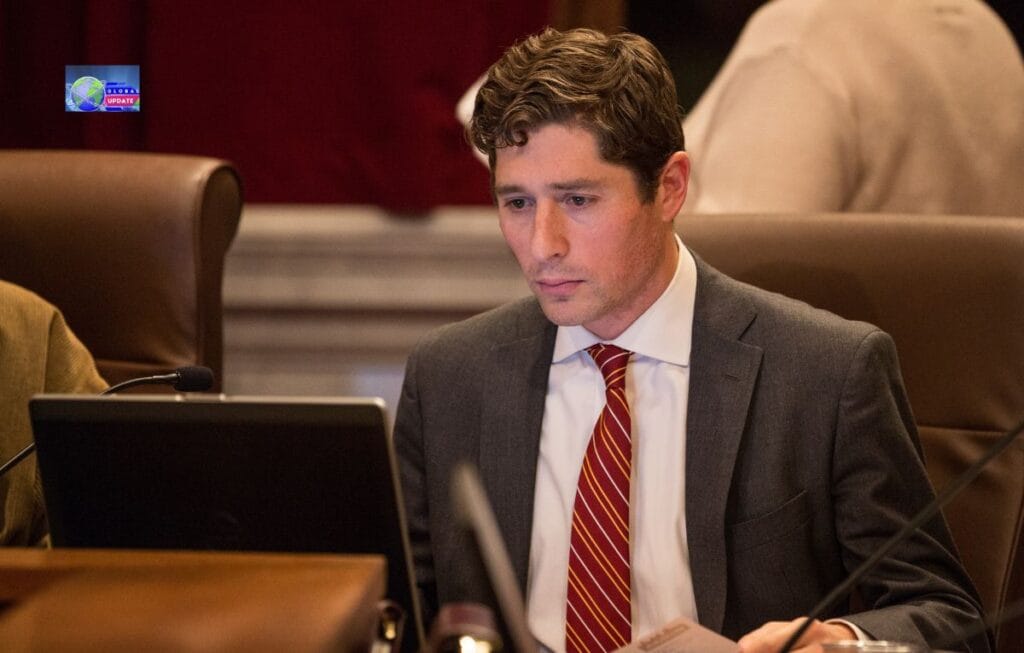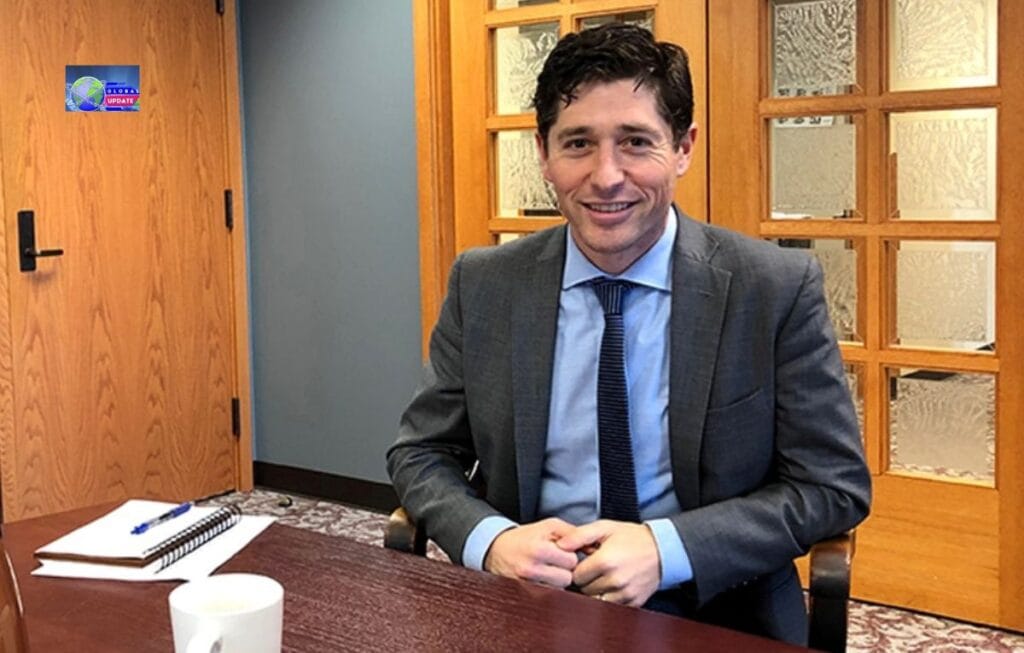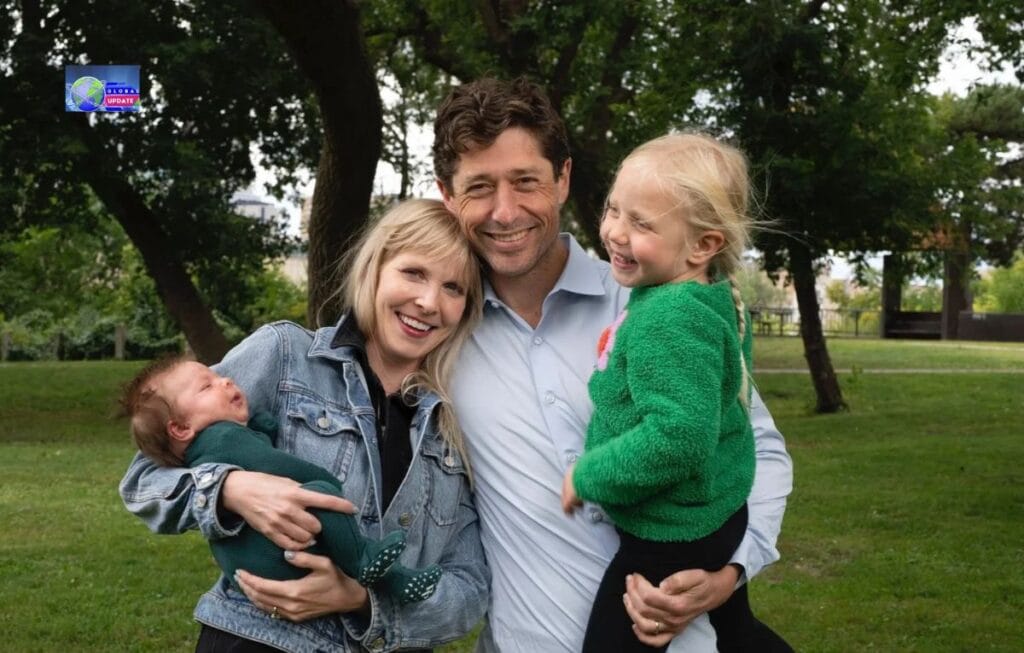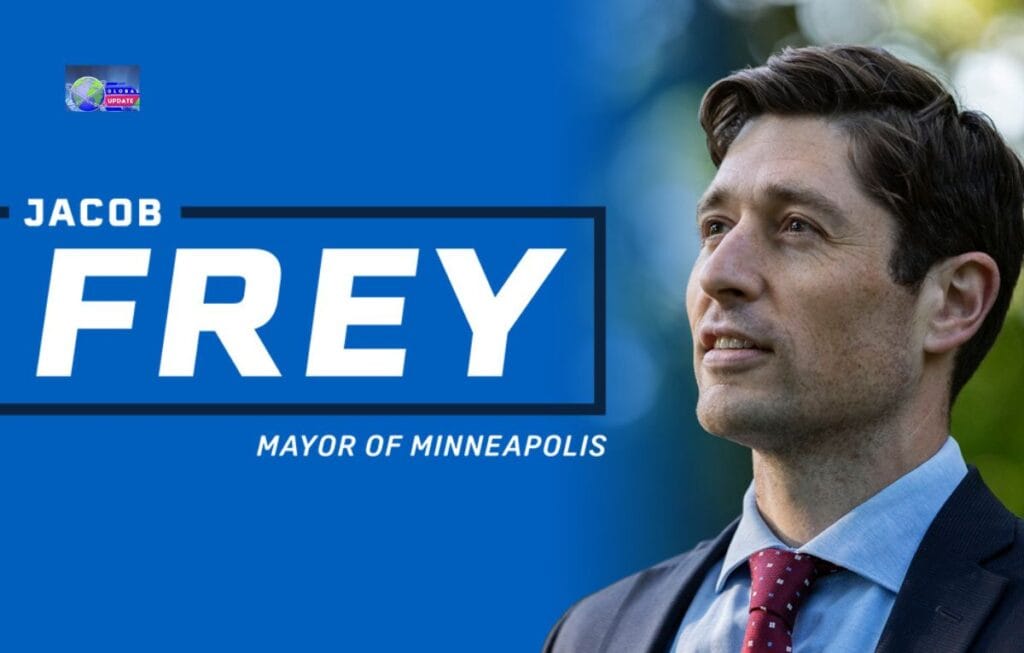Mayor Jacob Frey continues to redefine leadership in Minneapolis, balancing police reform, housing initiatives, and community resilience as he leads the city toward a more equitable future.
Jacob Frey Background & Career
He received a bachelor’s degree in government from the College of William & Mary and subsequently pursued legal studies at Villanova University, where he graduated with honours.
Before entering politics, Frey was a competitive distance runner (he represented Team USA in the Pan American Games marathon) and later practiced law, focusing on employment discrimination and civil rights.
In 2013, Frey was elected to the Minneapolis City Council, representing Ward 3.
He then ran for mayor and was elected as the 48th Mayor of Minneapolis, taking office in early 2018.
His platform included priorities such as increasing affordable housing, improving police-community relations, and strengthening neighbourhoods.

Recent Developments & Key Issues
Police Reform and Executive Action
One of Mayor Frey’s high-profile initiatives in 2025 is his push to continue and codify police reform in Minneapolis.
On June 10, 2025, he signed an executive order to implement and accelerate reforms that had been part of a federal consent decree.
The signing came after the U.S. Justice Department dropped the federal oversight agreement that was in place, but Frey maintained the city’s commitment to reform.
Safety and Crime.
Data from early 2025 indicated a slight decline in crime in several vital areas: compared to the first two months of 2024, Minneapolis recorded an 11% decline in aggravated assaults and a nearly 50% fall in robberies.
The mayor’s signature highlighted the need to prioritise public safety.
However, the city has also faced serious mass-shooting incidents. The mayor’s sign highlighted the injuries caused by two shootings in September 2025.
Mayor Frey publicly called the events “horrible” and “unacceptable” and stressed the urgent need for action.
Homelessness and Housing
Housing and homelessness remain critical issues under Frey’s leadership.
For example, in August 2025, the mayor considered legal action against a private property owner in Minneapolis who allowed a homeless encampment to remain on private land. This demonstrates the ongoing tension in the city regarding the management of camps and land use.
Political Landscape & Reelection Bid
The local Democratic-Farmer-Labour (DFL) Party had its convention in July 2025, marking an important political event.
In the upcoming mayoral campaign in Minneapolis, the ruling party chose State Senator Omar Fateh over Frey.
Fateh received more than 60% of the delegates’ votes, suggesting a serious threat to Frey’s.
The conversation revolves around incumbency and reveals changing dynamics within the city’s progressive base.
Frey’s campaign challenged the process as “flawed” and appealed the endorsement.
Why It All Matters
Mayor Frey’s role is significant because Minneapolis remains a focal point of national debates around policing, urban safety, affordable housing, and governmental reform, particularly in light of the events following George Floyd’s death in 2020.
Frey’s efforts to lead through reform, redevelopment, and public safety initiatives place him at the heart of how large American cities navigate change.
The endorsement of his challenger by the DFL suggests that while Frey has built a decade-long profile in the city, his leadership is now under fresh scrutiny, especially from more progressive elements within the city’s politics.

Looking Ahead
- Mayoral Race: Frey is running for what he has described as his final term as mayor, making this 2025 election potentially his last. The outcome will shape Minneapolis’s direction for the next four years.
- Policy Implementation: Key focuses will be delivering on crime reduction, homelessness solutions, housing affordability, and sustaining police reform.
- Public Sentiment: How voters assess Frey’s record, especially around safety, housing, and progressive reforms, will determine whether he remains in office or is replaced by a candidate with a different agenda. A candidate with a different agenda is likely to emerge.
“Jacob Frey: The Mayor, The Milestones, The Momentum”
- Timeline (2013–2025)
- 2013: Elected to Minneapolis City Council
- 2018: Becomes the 48th Mayor of Minneapolis
- 2020: Leads the city through the George Floyd protests
- 2022: Re-elected after police reform controversies
- 2025: Pushes executive order for continued police reforms post-consent decree
- 2025: Faces DFL endorsement challenge from Omar Fateh
- Policy Highlights
- Affordable housing expansion and homelessness strategy
- Public safety and crime reduction (11% drop in assaults, early 2025)
- Environmental initiatives and urban development projects
- Public Sentiment & Polling
- 2020: Approval rating drops post-Floyd protests (~36%)
- 2022: Re-elected with the majority of moderate voters’ support
- 2025: Approval rebounds to mid-50s after improved safety stats
- Quote Section
- “Reform isn’t a moment; it’s a movement.” — Jacob Frey, June 2025
- Current Outlook (Late 2025)
- Running for the final term as mayor
- Minneapolis is divided between reform continuity and progressive change.
Mayor Jacob Frey Biography
Jacob Lawrence Frey was born on July 23, 1981, in Oakton, Virginia.
On a track scholarship, he studied government at the College of William & Mary before earning a J.D. with honours from the Villanova University School of Law.
Before his full entry into politics, he competed as a distance runner, even representing Team USA in the 2007 Pan American Games marathon.
Frey moved to Minneapolis after graduating from law school, where she practiced employment and civil rights law and became deeply involved with local organisations.
In 2013, he was elected to the Minneapolis City Council, representing Ward 3, where he focused on affordable housing, neighbourhood growth, and small business development.
His areas of focus include affordable housing, police-community relations, climate action, and economic equity.
Frey lives in Northeast Minneapolis with his wife, Sarah, and their daughters.
Latest Updates (2025)
- In September 2025, a shooting at a homeless encampment in South Minneapolis—one woman killed, six injured—intensified scrutiny of Mayor Frey’s approach to homelessness. Critics argue Critics argue that Frey’s strategy of proactive encampment closures lacks sufficient shelter support. He pointed out that the city has reduced unsheltered homelessness by 30% since 2020.
- In July 2025, the Minnesota Democratic–Farmer–Labour (DFL) Party endorsed State Senator Omar Fateh for the upcoming mayoral race over Frey, indicating a shift in progressive support away from Frey. Frey appealed the process.
Net Worth & Finances
Recent projections place Frey’s 2025 net worth at approximately $700,000.
His primary sources of income are his public service disclosures and mayoral salary; no notable company assets or side projects have been made public.
A Look Inside Jacob Frey’s Family Life Outside of Politics
Outside the political spotlight, Jacob Frey resides in Minneapolis with his wife, Sarah Clarke, who is a talented chef and restaurateur recognised for her innovative culinary creations.
The couple’s frequent attendance at charity drives and community activities reflects their mutual love for community involvement.

Frey frequently says in interviews that his two young kids “keep him grounded amid the chaos of city politics. They are proud parents.
His family life, warm and grounded, offers a softer contrast to his demanding public role, reminding citizens that behind every policy and press conference stands a devoted father and husband rooted in the heart of Minneapolis.
Why He Matters
As mayor of one of America’s major cities, Frey’s leadership spotlights urban challenges, police reform, affordable housing, public safety, and social issues that have broader relevance far beyond Minneapolis.
This includes issues such as homelessness and social equity.
The decisions made by the administration, especially those concerning the city’s structural changes like strong-mayor governance, have a significant impact.



